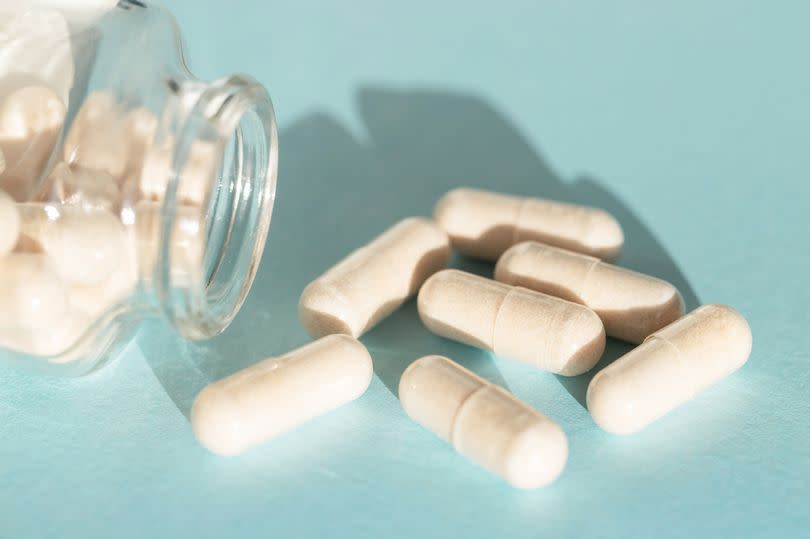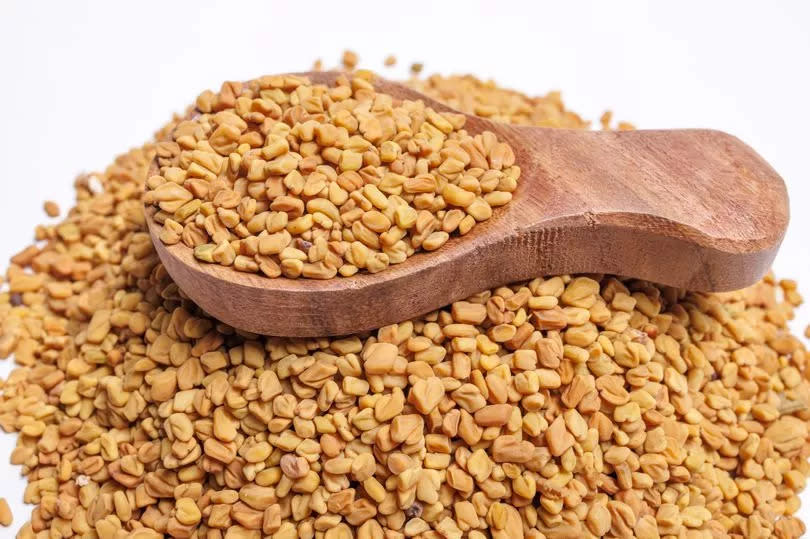Experts say 12p pill could help prevent and reverse diabetes

Health experts say there is certain type of herb you can eat that may help reverse type 2 diabetes or potentially prevent the condition. According to studies, fenugreek has been proven to provide beneficial effect on controlling blood sugar and cholesterol levels.
You can buy fenugreek as pills at the likes of Holland and Barrett. You can get a tub of 90 capsules for £10.99 - which equates to 12p per tablet.
Fenugreek leaves and seeds serve various purposes - it can add a distinct flavour to curries and other dishes, making it a crucial ingredient in many Asian culinary meals. Fenugreek is also valued for its medicinal properties.
Fenugreek seeds, also known as trigonella foenum graecum, contain a high amount of soluble fibre. This fibre plays a role in reducing blood sugar levels by slowing down the process of digestion and absorption of carbohydrates.
What is diabetes?
Diabetes is a condition that causes a person's blood sugar level to become too high. There are two main types of diabetes:
type 1 diabetes – a lifelong condition where the body's immune system attacks and destroys the cells that produce insulin. Unfortunately is does not have a known cure yet.
type 2 diabetes – where the body does not produce enough insulin, or the body's cells do not react to insulin properly.
Type 2 diabetes is far more common than type 1. In the UK, over 90% of all adults with diabetes have type 2.
It's important to note that while there isn't a cure for type 2 diabetes, research suggests that it can be reversed in certain cases. By making changes to your diet and losing weight, it's possible to achieve and maintain normal blood sugar levels without relying on medication.
What have studies shown?
Multiple studies show potential anti-diabetic benefits of taking fenugreek. Several clinical trials have demonstrated that fenugreek seeds can help alleviate various metabolic issues linked to type 1 and type 2 diabetes by reducing blood sugar levels and enhancing glucose tolerance.
A study conducted in India revealed that incorporating 100 grams of defatted fenugreek seed powder into the daily meals of individuals with type 1 diabetes led to a notable decrease in fasting blood sugar levels. It also enhanced glucose tolerance and resulted in lower levels of total cholesterol, LDL cholesterol, and triglycerides.

In a different study, adding 15 grams of powdered fenugreek seed to a meal for individuals with type 2 diabetes helped decrease the increase in blood sugar levels after eating. Another research showed that consuming 2.5 grams of fenugreek twice daily for three months led to lower blood sugar levels in those with mild type 2 diabetes, but not in those with severe cases.
A study in 2015 also found fenugreek seeds helped to lower blood glucose in patients with diabetes. Across three years, men and women aged 30–70 years with criteria of prediabetes where split into two group. The first group was given fenugreek powder twice a day before meals, while the other group wasn't.
At the end of the trail, the rate of diabetes reduced significantly in the group that took fenugreek compared to the group that didn't. The study added: "The outcome of diabetes in Fenugreek group was positively associated with serum insulin and negatively associated with insulin resistance."
What else is fenugreek good for?
Fenugreek seeds contain a wealth of vitamins, minerals, and antioxidants. Together they help safeguard our body's cells against harm caused by unstable molecules called free radicals.
Nursing mothers have been using them for centuries to boost breast milk production during pregnancy and after giving birth. They are also popular for treating colds and sore throats because of their strong antiviral properties.
Researchers have also found that fenugreek seeds could potentially help with arthritis, high cholesterol, skin issues like wounds, rashes, and boils, bronchitis, abscesses, hair loss, constipation, upset stomach, kidney problems, heartburn, male impotence, and various sexual dysfunctions.
What to do before trying it:
Make sure to talk to your doctor and diabetes healthcare team before using fenugreek as a treatment for your diabetes. It's important to ensure that it's safe for you.
Just like other herbs that lower blood sugar, fenugreek may have the potential to lower your blood sugars too much (hypoglycaemia) when taken with prescribed diabetes medications. This could mean that you might need to adjust the dosage of your anti-diabetic medication.
Food supplements should never be used as a replacement for a diverse and well-balanced diet, as well as a healthy lifestyle. If you are pregnant, breastfeeding, taking any medications, or under medical supervision, it is important to consult a doctor or healthcare professional before using them. If you experience any negative reactions, stop using them and seek medical advice.
For more information, visit JDRF and Diabetes UK.

 Yahoo News
Yahoo News 